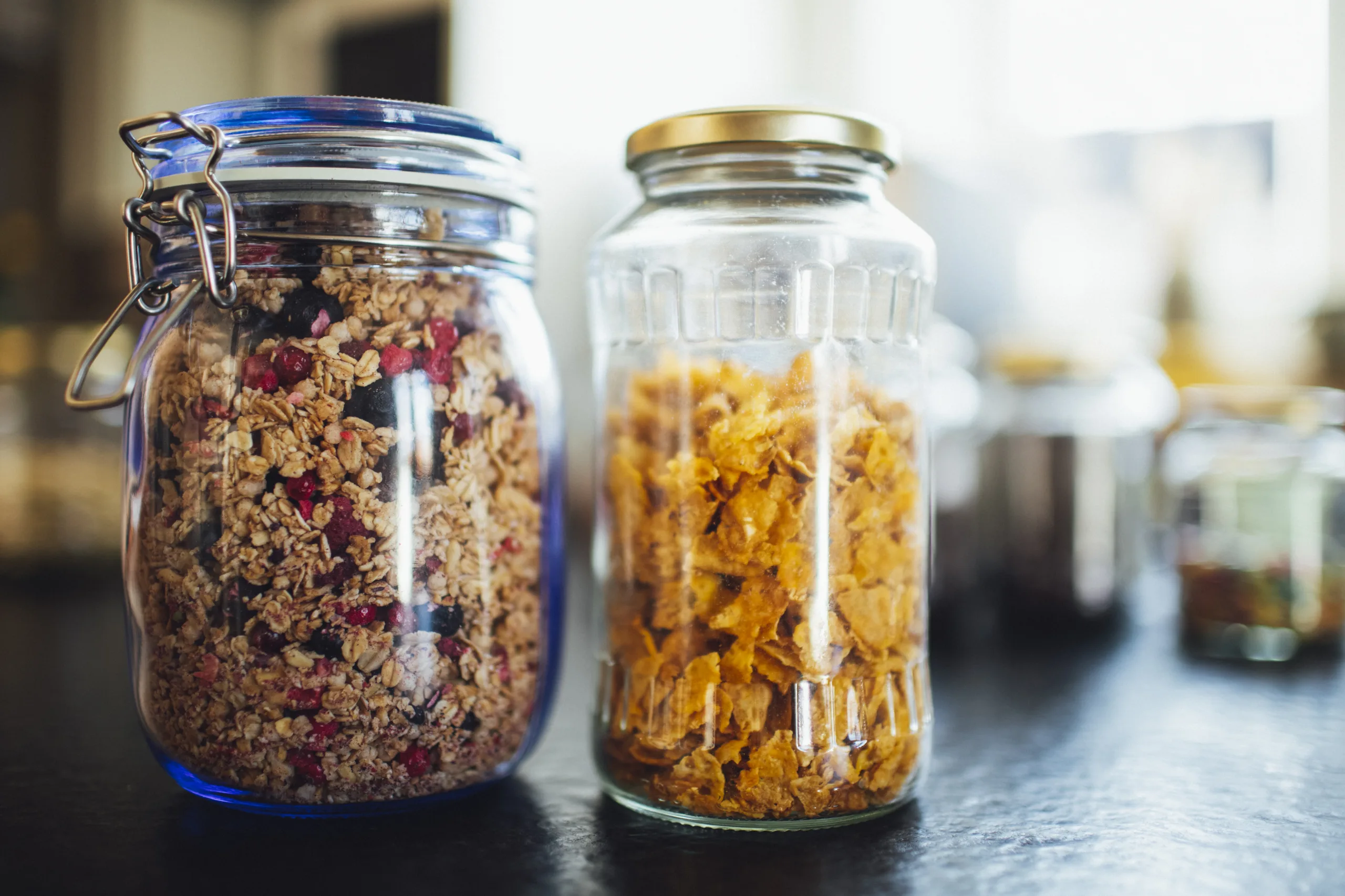Are you suffering from digestive issues such as bloating, gas and abdominal pain? If so, you may have considered a low FODMAP diet. A low FODMAP diet reduces the amount of certain carbohydrates that can be challenging for your body to digest. But what many people don’t realize is that digestive enzymes can be an important part of making this diet work. Digestive enzymes help break down the carbohydrates in your food, allowing your body to better absorb them and reduce the uncomfortable symptoms associated with IBS and other digestive issues. In this article, we’ll discuss how digestive enzymes can benefit those on a low FODMAP diet, what types of enzymes are available and how to incorporate them into your daily routine.
Digestive enzymes for those on a Low Fodmap Diet are supplements that help break down certain components of food that can be difficult to digest, especially for those with digestive sensitivities. Such components include carbohydrates, proteins, and fats. These enzymes can help improve digestion and reduce symptoms associated with a Low Fodmap Diet, such as bloating and abdominal pain.
Digestive Enzymes and Low Fodmap Diet
Digestive enzymes play an important role in helping people with digestive issues follow a low FODMAP diet. FODMAPs, or Fermentable Oligosaccharides, Disaccharides, Monosaccharides, and Polyols, are a type of carbohydrate found in many common foods. They can be difficult to digest for people with certain digestive problems, such as irritable bowel syndrome (IBS). By taking digestive enzymes with meals that contain FODMAPs, individuals can break down the carbohydrates more easily. This helps to reduce the symptoms of IBS and makes it easier to follow a low FODMAP diet.
Digestive enzymes come in pill form and are taken with meals that contain FODMAPs. The enzymes break down the carbohydrates into smaller molecules so they can be digested more easily by the body. This helps to reduce symptoms such as bloating, gas, and abdominal pain that can occur when eating foods containing high levels of FODMAPs. Additionally, taking digestive enzymes helps the body absorb more nutrients from the food being eaten because it does not have to work as hard to digest it.
For those following a low FODMAP diet, digestive enzymes are an invaluable aid in managing their symptoms and making sure they get enough nutrition from their food. However, it is important to note that taking digestive enzymes alone is not enough; individuals should also adjust their diet and lifestyle to minimize their consumption of foods high in FODMAPs and maximize their intake of nutritious foods that are easy to digest. With proper management of both diet and lifestyle combined with regular use of digestive enzymes, individuals can experience greater relief from IBS-related symptoms while still enjoying a healthy diet.
Types of Digestive Enzymes for Low Fodmap Diet
Digestive enzymes are proteins that help break down food into smaller molecules so that the body can absorb and utilize them. A low FODMAP diet is a specialized eating plan designed to reduce symptoms of digestive distress, such as bloating, abdominal pain, and gas. To help manage this type of diet, some individuals may need to supplement their digestive enzymes. There are several types of digestive enzymes available to support a low FODMAP diet.
Proteases are digestive enzymes that break down proteins into their component amino acids. They are essential for proper digestion and absorption of protein-containing foods such as meat, fish, eggs, nuts, and dairy products. Individuals on a low-FODMAP diet should consider supplementing with proteases to ensure adequate digestion and absorption of these foods.
Click here to preview your posts with PRO themes ››
Carbohydrase enzymes are responsible for breaking down carbohydrates into simple sugars such as glucose and fructose. These sugars can then be absorbed by the small intestine and converted into energy by the body’s cells. Supplementing with carbohydrase enzymes may help individuals who experience bloating or gas after eating high-carbohydrate foods such as breads, cereals, and grains.
Lipase is an enzyme produced by the pancreas which helps break down dietary fats into fatty acids and glycerol which can then be absorbed by the small intestine. Supplementing with lipase may help individuals on a low-FODMAP diet improve their fat digestion and absorption while avoiding potentially problematic high-fat foods like butter or oils.
Amylase is an enzyme produced in the saliva which helps break down starch molecules in food into simpler sugars like glucose and maltose which can then be absorbed by the small intestine. Amylase supplementation may help those on a low-FODMAP diet maximize their starch digestion while avoiding potentially problematic high-starch foods like potatoes or rice.
In addition to these digestive enzymes, there are other supplements available to support a low FODMAP diet such as probiotics and prebiotics that can help restore balance in the gut microbiota and promote digestive health overall. Ultimately, everyone’s needs will vary depending on their individual health concerns so it’s important to work with your healthcare provider when selecting any supplements for your dietary needs.
Digestive Enzymes for Low Fodmap Diet
Digestive enzymes are essential for breaking down food, allowing the body to absorb the essential nutrients. Enzymes also play an important role in managing digestive symptoms associated with a low FODMAP diet. A low FODMAP diet is a program that eliminates certain carbohydrates from your diet to reduce the symptoms of irritable bowel syndrome (IBS). By adding digestive enzymes to your diet, you can help improve digestion and reduce the symptoms of IBS.
Digestive enzymes can help break down carbohydrates, proteins and fats, which are not broken down by the body’s natural enzymes. This helps to break down food more efficiently and reduce symptoms such as bloating, gas and constipation. Digestive enzymes can also help reduce inflammation in the gut, which is often associated with IBS. Additionally, they can help reduce food sensitivities that may be triggered by certain foods on a low FODMAP diet.
Digestive enzymes are available in supplement form and can be taken before or after meals. They are also found naturally in some foods such as pineapple and papaya. Taking digestive enzyme supplements can be beneficial if you are following a low FODMAP diet and are experiencing digestive issues such as bloating or gas. They can also help improve overall digestion and absorption of nutrients from food.
In addition to helping improve digestion, digestive enzymes may also have other health benefits. For example, they may be beneficial for those with autoimmune diseases such as Crohn’s disease or ulcerative colitis since they have anti-inflammatory properties. Furthermore, they may help reduce cholesterol levels and support weight loss by helping to break down fat more efficiently.
Overall, digestive enzymes can be beneficial for those following a low FODMAP diet who experience digestive issues such as bloating or gas. They can also have other health benefits such as reducing inflammation and supporting weight loss. Adding digestive enzymes to your diet may help improve digestion overall and reduce the symptoms of IBS.
Side Effects of Taking Digestive Enzymes for Low Fodmap Diet
Digestive enzymes are often recommended as part of a low FODMAP diet to help break down carbohydrates that can be difficult for the body to digest. While digestive enzymes can be beneficial for some people, it is important to be aware of potential side effects that may occur. Some common side effects may include abdominal discomfort, nausea, bloating, and diarrhea. In rare cases, more serious side effects may occur such as allergic reactions or liver damage.
Click here to preview your posts with PRO themes ››
Abdominal discomfort is one of the most commonly reported side effects of taking digestive enzymes for a low FODMAP diet. This discomfort can include cramping, bloating, and gas. Nausea is also a common side effect and may be related to the amount or type of enzyme taken. If nausea occurs, it is important to consult your doctor as this could be a sign of an allergy or intolerance to the enzyme product.
Diarrhea is another potential side effect associated with taking digestive enzymes for a low FODMAP diet. This can range from mild to severe depending on the individual and the amount or type of enzyme taken. If diarrhea persists for more than a few days or worsens over time, it is important to consult your doctor as this could be a sign of an underlying medical condition or an allergic reaction to the product.
In rare cases, more serious side effects such as allergic reactions or liver damage can occur when taking digestive enzymes for a low FODMAP diet. Allergic reactions can range from mild itching and hives to swelling and difficulty breathing in extreme cases. If any signs of an allergic reaction occur, it is important to seek medical attention immediately. Liver damage can also occur in rare cases and symptoms may include yellowing skin or eyes, dark urine, fever, abdominal pain, loss of appetite, and vomiting. If any signs of liver damage occur while taking digestive enzymes it is important to seek medical attention immediately

Tips to Get the Most Out of Digestive Enzymes for Low Fodmap Diet
Digestive enzymes are dietary supplements that can help improve digestion and reduce certain symptoms associated with a low FODMAP diet. While they are commonly used to treat digestive issues, they can also be beneficial for those following a low FODMAP diet. Here are some tips to get the most out of digestive enzymes when on a low FODMAP diet:
Choose an Appropriate Supplement: When choosing a digestive enzyme supplement, it is important to select one that is specifically formulated for a low FODMAP diet. This will ensure that the supplement contains the right ingredients and dosages to support your specific needs.
Follow Dosage Instructions: It is important to follow the dosage instructions carefully when taking any type of supplement, including digestive enzymes. Taking too much or too little could affect how effective the supplement is in helping you manage your symptoms.
Talk to Your Doctor: Before taking any type of supplement, it is always recommended that you speak with your doctor or healthcare provider first. This will ensure that the supplement is safe for you and won’t interact with any medications you may be taking.
Monitor Your Symptoms: As with any dietary change or new supplement, it is important to monitor how your body responds when taking digestive enzymes on a low FODMAP diet. If you experience any adverse reactions or worsening of symptoms, stop taking them and speak with your doctor as soon as possible.
By following these tips, you can ensure that you are getting the most out of your digestive enzyme supplements on a low FODMAP diet. Always remember to speak with your doctor before starting any new supplement regimen.
Foods to Avoid When Taking Digestive Enzymes for Low Fodmap Diet
When following a low Fodmap diet, it is important to be aware of certain foods that could potentially interact with the digestive enzymes you may be taking. These foods can cause digestive upset and interfere with the body’s ability to break down and absorb nutrients. Some of the foods to avoid when taking digestive enzymes include: high-fat dairy products, processed meats, fried or fatty foods, sugar-sweetened beverages, alcohol, caffeine, and spicy foods.
High-fat dairy products such as cream, butter, cheese and sour cream can interfere with the absorption of important nutrients in digestion. Processed meats such as bacon, hot dogs and sausages can contain additives which can irritate the gut lining and contribute to digestive problems. Fried or fatty foods are more difficult for the body to digest and can cause gastrointestinal distress. Sugar-sweetened beverages such as soda and energy drinks can also interfere with digestion by causing spikes in blood sugar levels.
Click here to preview your posts with PRO themes ››
Alcohol consumption should also be avoided when taking digestive enzymes due to its potential for irritating the gut lining. Caffeine in coffee or tea can also cause issues with digestion due to its stimulating effects on the gastrointestinal tract. Finally, spicy foods should be avoided when taking digestive enzymes as they have been known to cause heartburn and other forms of indigestion.
By avoiding these foods when taking digestive enzymes, you can help ensure that your body is able to properly break down and absorb the nutrients it needs from food while following a low Fodmap diet. Additionally, it is important to speak with your doctor or nutritionist if you have any questions or concerns about which foods may be causing issues with your digestion.
Digestive Enzymes for Low Fodmap Diet
Digestive enzymes play an important role in managing digestive symptoms associated with a low FODMAP diet. These enzymes help break down food into smaller molecules, making it easier for the body to absorb nutrients and vitamins. They can also reduce bloating, gas, and other digestive problems that may be caused by certain types of food. When taking digestive enzymes, it is important to choose foods that are best suited to the specific type of enzyme being taken.
High-Fiber Foods
High-fiber foods such as fruits, vegetables, whole grains, and legumes are good sources of dietary fiber, which helps support healthy digestion. Eating a diet rich in fiber can help reduce bloating and gas by moving food through the digestive tract more quickly. Fiber can also help increase the number of beneficial bacteria in the gut, which can improve digestion and reduce inflammation.
Healthy Fats
Healthy fats such as olive oil, avocados, nuts, and seeds are essential for healthy digestion. These fats provide energy and help absorb fat-soluble vitamins such as vitamin A, D, E, and K. Additionally, they can help slow down digestion so nutrients can be absorbed more efficiently.
Fermented Foods
Fermented foods such as yogurt, kefir, kombucha, sauerkraut and kimchi are rich in probiotics which can help improve digestion by increasing beneficial bacteria in the gut. Probiotics have been found to reduce symptoms of irritable bowel syndrome (IBS) such as bloating and abdominal pain.
Protein-Rich Foods
Protein-rich foods such as lean meats like chicken or turkey breast or fish like salmon or tuna are good sources of essential amino acids which are needed for healthy digestion. Eating enough protein helps maintain muscle mass and promotes satiety after meals which can make it easier to stick to a low FODMAP diet plan.
By incorporating these types of foods into your diet while taking digestive enzymes on a low FODMAP diet you can ensure you’re getting all the nutrients your body needs while helping to improve your digestion.

Conclusion
Digestive enzymes can be a great supplement to add to a Low FODMAP diet. They can help break down FODMAPs and make them easier to digest. They may also help reduce the symptoms associated with IBS, such as bloating, gas, and abdominal pain. However, it is important to note that digestive enzymes should not be used as a substitute for the low-FODMAP diet. They should be used in conjunction with other dietary and lifestyle changes to ensure optimal digestive health.
Additionally, it is important to discuss the use of digestive enzymes with your doctor or nutritionist before beginning supplementation. They can help provide guidance on which type of enzyme would work best for your individual needs and how much you should take each day. By taking the right steps to support your digestive health, you can enjoy a healthier lifestyle and improved gastrointestinal wellness.
In conclusion, digestive enzymes can be an effective way to support gut health on a Low FODMAP diet. When taken in the right dosages and in combination with other dietary changes, they may provide relief from uncomfortable IBS symptoms and improve overall digestive wellness.

